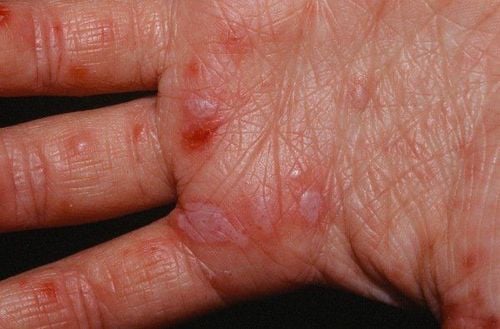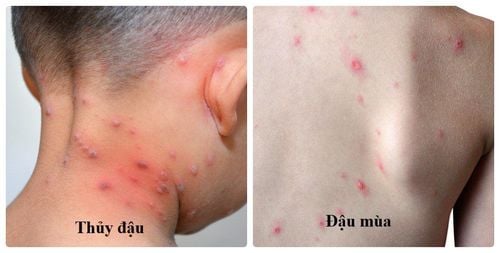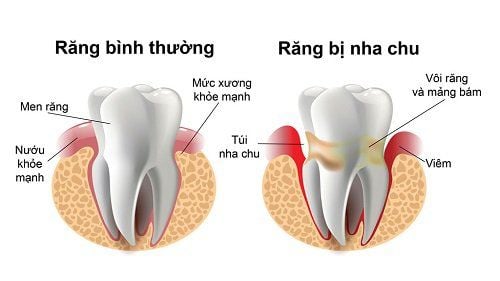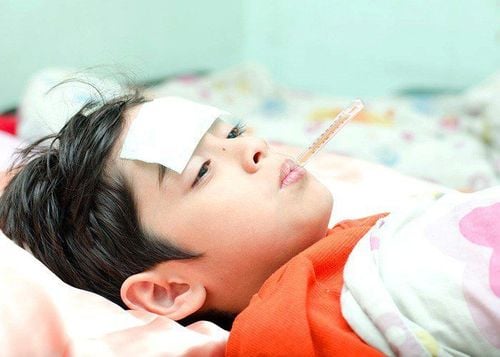This article is reviewed by Specialist Level 2 Dr. Cao Thi Thanh at the Pediatrics – Neonatology Department of Vinmec Hai Phong International Hospital.
Hand, foot, and mouth disease (HFMD) is caused by enteroviruses, most commonly Coxsackievirus and Enterovirus 71. The disease spreads primarily through the digestive tract but can also be transmitted via respiratory secretions. Clinically, HFMD progresses through four distinct stages.
1. Incubation Stage
The incubation period of HFMD typically lasts 3–7 days after a child is exposed to the virus through saliva, vesicle fluid (a painful swelling on the skin that contains liquid), or feces of an infected person. While HFMD can affect individuals of all ages, it is most common in children, particularly during outbreaks. Children are highly susceptible to the virus in environments such as daycare centers, kindergartens, or public play areas, where they may come into contact with vesicle secretions, gastrointestinal secretions, respiratory droplets from infected peers.
Regarding the question of whether HFMD is contagious, specialists emphasize that HFMD can also spread indirectly. This occurs through hands touching virus-infected surfaces, improper hygiene by caregivers, poor environmental sanitation, contaminated toys, or improperly cooked food….
2. Initial Symptoms Stage
The onset of HFMD lasts 1–2 days, during which symptoms resemble those of the flu, including:
Low-grade or high fever
Fatigue
Sore throat
Decreased appetite, possibly accompanied by vomiting
Having diarrhea a few times a day
In many cases, parents are unaware of how long HFMD-related fever typically lasts, which can lead to delayed recognition and treatment of potential complications.
During this stage, a child may experience mild to moderate fever. However, persistent fever above 39°C for over three days, particularly in children under three years old, could indicate a high risk of complications such as encephalitis.
3. Illness Stage
This stage lasts 3–10 days, during which hallmark HFMD symptoms manifest:
Mouth ulcers:
Lesions appear on the mucosa, including the mouth, gums, and tongue. Vesicles measuring 2–3 mm rupture quickly, causing pain, feeding difficulties, and increased salivation.
Vesicular rash
Initially appearing as small red macules (1–2 mm), these lesions are often overlooked unless closely examined by parents or healthcare providers. The rash evolves into oval vesicles measuring 2–10 mm.
The vesicular rash typically develops on the palms, soles, buttocks (diaper area in infants), and knees, with a reddish base. The vesicles may be raised or subdermal, containing clear fluid that is usually painless. If the fluid becomes cloudy, it may indicate secondary infection, though this is rare. Vesicles usually resolve within seven days and may leave hyperpigmented scars or completely fade if HFMD is treated appropriately.

Other Symptoms
Children may experience mild fever and vomiting. However, persistent high fever and frequent vomiting significantly increase the risk of complications. Neurological, cardiovascular, and respiratory complications may arise as early as 2–5 days after symptom onset.
4. Convalescent stage (Recovery stage)
If the child recovers without complications, they will enter the recovery stage, typically lasting 3–5 days after the acute period or seven days from the onset of symptoms.
It is important to note that not all HFMD patients follow the same progression. The four stages described above represent the acute form of the disease. There are also two atypical clinical presentations:
Hyperacute form:
This progresses rapidly, with severe complications such as circulatory or respiratory failure, coma, and death within 24–48 hours.
Atypical form:
Symptoms are less pronounced, such as unclear rashes or isolated mouth ulcers, or the child may show only neurological, cardiovascular, or respiratory symptoms without any rash or mouth ulcers.

5. When Should You Take Your Child to the Hospital?
HFMD complications are extremely dangerous and can even be fatal. Parents should not only focus on prevention by maintaining proper hygiene but also remain vigilant for early signs of complications to seek immediate medical attention. Emergency symptoms include:
- Continuous high fever with vomiting
- Neurological signs such as startling, tremors, lethargy, unconsciousness, or seizures
- Respiratory symptoms like difficulty breathing, rapid breathing, or irregular breathing
- Circulatory failure such as rapid heartbeat, cold extremities, pale or bluish skin
Additionally, if parents are overly concerned about your child's general condition, unsure about the disease’s contagiousness, or unaware of how long HFMD fever typically lasts, you should not hesitate to visit the hospital, especially if you live far from medical facilities
To arrange an appointment, please call … or make your reservation directly HERE. You may also download the MyVinmec app to schedule appointments faster and manage your reservations more conveniently.














